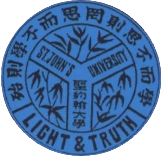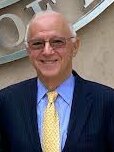
Annette Lu Hsiu-lien is a Taiwanese politician. A feminist active in the tangwai movement, she joined the Democratic Progressive Party in 1990, and was elected to the Legislative Yuan in 1992. Subsequently, she served as Taoyuan County Magistrate between 1997 and 2000, and was the Vice President of the Republic of China from 2000 to 2008, under President Chen Shui-bian. Lu announced her intentions to run for the presidency on 6 March 2007, but withdrew to support eventual DPP nominee Frank Hsieh. Lu ran again in 2012, but withdrew for a second time, ceding the nomination to DPP chairwoman Tsai Ing-wen. She lost the party's Taipei mayoral nomination to Pasuya Yao in 2018, and stated that she would leave the party. However, by the time Lu announced in September 2019 that she would contest the 2020 presidential election on behalf of the Formosa Alliance, she was still a member of the Democratic Progressive Party.

Chen ( ) is a common Chinese-language surname and one of the most common surnames in Asia. It is the most common surname in Taiwan (2010) and Singapore (2000). Chen is also the most common family name in Guangdong, Zhejiang, Fujian, Macau, and Hong Kong. It is the most common surname in Xiamen, the ancestral hometown of many overseas Hoklo.
Paul, Weiss, Rifkind, Wharton & Garrison LLP is an American multinational white-shoe law firm headquartered on Sixth Avenue in New York City. The firm maintains an all-equity partnership, with approximately 150 partners.
Zheng Enchong is a Shanghai-based Weiquan lawyer. Zheng was sentenced in 2003 to three years in prison for his advocacy on behalf of citizens who had been forcibly evicted from their homes. The charge stemmed from two faxes Zheng was alleged to have sent to the New York-based organisation Human Rights in China concerning workers' protests. Upon his release from prison, he remained under house arrest.

St. John's University (SJU) was a Christian university in Shanghai. It was founded in 1879 by American missionaries.

Gordon Guthrie Chang is an American journalist, lawyer, political commentator, and writer. He is the author of The Coming Collapse of China in which he attempted to predict the collapse of China and claimed that it would collapse by 2011. In December 2011, he changed the timing of the year of the predicted collapse to 2012.

Chen Guangcheng is a Chinese civil rights activist who has worked on human rights issues in rural areas of the People's Republic of China. Blind from an early age and self-taught in the law, Chen is frequently described as a "barefoot lawyer" who advocates for women's rights, land rights, and the welfare of the poor.

Teng Biao is a Chinese lawyer and political activist. He is a lecturer at the China University of Political Science and Law in Beijing. He has been a vocal supporter of human rights activists such as Chen Guangcheng and Hu Jia. He has been arrested at least twice, in March 2008 and in February 2011. He was also a visiting scholar at Harvard Law School from (2015-16) and at the Chinese University of Hong Kong.

Louis Heilprin Pollak was a United States district judge of the United States District Court for the Eastern District of Pennsylvania. He served on the faculty of Yale Law School and was dean from 1965 to 1970, served on the faculty of the University of Pennsylvania Law School and was dean from 1974 to 1978. In 2000, he was elected to the American Philosophical Society.
The Weiquan movement is a non-centralized group of lawyers, legal experts, and intellectuals in China who seek to protect and defend the civil rights of the citizenry through litigation and legal activism. The movement, which began in the early 2000s, has organized demonstrations, sought reform via the legal system and media, defended victims of human rights abuses, and written appeal letters, despite opposition from the Chinese Communist Party (CCP). Among the issues adopted by Weiquan lawyers are property and housing rights, protection for AIDS victims, environmental damage, religious freedom, freedom of speech and the press, and defending the rights of other lawyers facing disbarment or imprisonment.

Stephen A. Orlins has been president of the National Committee on United States–China Relations since May 1, 2005. Prior to this, Orlins was the managing director of The Carlyle Group Asia. He was also chairman of Taiwan Broadband Communications (TBC) and senior advisor to AEA Investors Inc., a New York based leveraged buyout firm, with responsibility for AEA’s business activities throughout Asia.
Louis Stix Weiss was a name partner of the international law firm of Paul, Weiss, Rifkind, Wharton & Garrison, a firm that traces its roots to one founded by Louis's father Samuel W. Weiss in 1875. He was best known as one of banker Marshall Field III's lawyers and for his work towards civil rights.
Soft detention is a form of house arrest used in the People's Republic of China to control political dissidents. It has its roots in the practices of the Chinese Empire which employed it as early as the Northern Song Dynasty when those such as Su Shi who criticized the emperor were subjected to it. Traditionally, and in modern practice, there are three levels of restriction; the loosest, "juzhu", restricts the detainee to their home district. This restriction was employed on the history teacher Yuan Tengfei who included information about banned aspects of modern Chinese history in his lectures. The second level, "anzhi", employed anciently on Su Shi, restricts the prisoner to their home, but they may be allowed to go for a walk or go to work. The severest form, "bianguan", which was imposed on the human rights activist Chen Guangcheng involves limited movement of the prisoner to their home, constant surveillance, restriction of contact with others, and, sometimes, harassment.

The Witherspoon Institute is a conservative think tank in Princeton, New Jersey founded in 2003 by Princeton University professor Robert P. George, Luis Tellez, and others involved with the James Madison Program in American Ideals and Institutions. Named after John Witherspoon, one of the signers of the United States Declaration of Independence, the institute's fellows include Harold James, John Joseph Haldane, and James R. Stoner, Jr.

Benjamin L. Liebman is the Robert L. Lieff Professor of Law and the director of the Hong Yen Chang Center for Chinese Legal Studies at Columbia Law School. He is widely regarded as one of the world's pre-eminent scholars of contemporary Chinese law.

Lanhee Joseph Chen is an American policy advisor, attorney and academic. Chen serves as the David and Diane Steffy Fellow in American Public Policy Studies at the Hoover Institution, director of domestic policy studies and lecturer in the public policy program at Stanford University and lecturer in law at Stanford Law School.

Bob Fu is a Chinese-American pastor. In 2002, he founded ChinaAid, which provides legal aid to Christians in China, and has been its president since then. Bob Fu was born in Shandong in 1968 and studied English literature at Liaocheng University in the 1980s. He converted to Christianity after an American teacher gave him a biography of a Chinese Christian convert. After his studies, Fu taught English at the Central Party School of the Chinese Communist Party in Beijing while participating in the house church movement. In 1996, Bob Fu and his family emigrated to Hong Kong and then the United States, after his wife became pregnant without government permission to have a child. Fu founded the China Aid Association in Philadelphia in 2002, but moved its headquarters to Midland, Texas, in 2004. Fu is also known for his role in helping negotiate barefoot lawyer Chen Guangcheng's immigration to the United States. In this sense, he has been described as a "liaison" between oppressed groups in China and foreign governments or media that can help them.
Joseph Chung-Hsin Tsai (Chinese: 蔡崇信; Pe̍h-ōe-jī: Chhòa Chông-sìn; born January 1964) is a Taiwanese-Canadian billionaire business magnate, lawyer, and philanthropist. He is a cofounder and chairman of the Chinese multinational technology company Alibaba Group and owns the Brooklyn Nets of the American National Basketball Association (NBA), the New York Liberty of the Women’s National Basketball Association (WNBA), the San Diego Seals of the National Lacrosse League, and has interests in several other professional sports franchises. Tsai's net worth is estimated to be US$8.1 billion.
Hsu Yu-hsiu is a Taiwanese judge who served on the Council of Grand Justices from 2003 to 2011.












